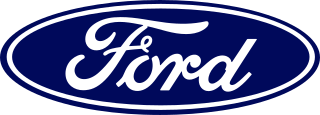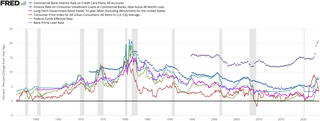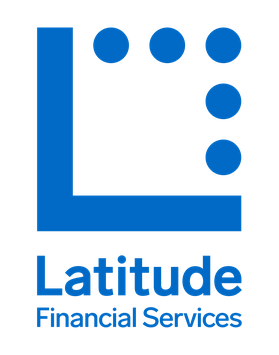History
Origins
AGC was registered as a public company on 18 June 1925 and listed on the stock exchange in 1928. Its business specialised in lending for cars and farm machinery and later expanded into personal loans and lending for non-farm business equipment. Most of the funding for AGC's loans came from issuing debentures to the public, offering attractive interest rates. The first Managing Director was Mr G K Bain who assumed control from the company commencement until his retirement in 1956.
Having a strong association with Ford Motor Company, which had just opened an Australian office and was establishing a dealer network, AGC incorporated Traders Finance Corporation (TFC) on 10 July 1925 to provide financing exclusively for the Ford dealer sales network. TFC was wound down in the late-1970s although AGC continued to maintain a large percentage of Ford dealers business.
Transport and General Insurance Insurance Company Ltd was formed in 1938 as a wholly owned subsidiary of AGC to provide insurance facilities for purchasers of vehicles from the motor dealer network, and for general insurance needs of the affiliated motor dealers. The name was changed to AGC (Insurances) Ltd in the mid 1970s to better identify with the AGC products. The business was sold to AMP Society in 1989 and operated as AMP United Insurances Ltd.
In 1957 the Bank of New South Wales (later called the Wales, the forerunner of today's Westpac) bought 40% of AGC and over the years progressively increased its interest to a majority stake of 76% and then acquired all remaining shares in 1988. Banking regulations at the time prevented banks from doing the sort of lending finance companies like AGC did, but buying a finance company let the banks get around that. All the major Australian banks ended up with finance company subsidiaries doing riskier lending than the banks themselves would. The Wales let AGC run as an independent business, and that included giving no guarantees on the debentures issued by AGC.
Local Expansion
Initially AGC operated through head office in Sydney, with state operations in each capital city. The first regional branch presence was established in Toowoomba in 1958 under the management of Keith Jack who would later become the Managing Director in 1980.
Further branch expansion quickly followed in all states and by the mid-1970s AGC operated more than 100 branch offices with over 3,000 staff. With advancing technology in the mid-1980s most suburban and regional branches were closed and the business operations were again centralised in large state operations, servicing clients statewide by local resident sales staff or electronically from state centres.
Offshore Expansion
AGC's first offshore operation was New Zealand which operated relatively autonomously as AGC (New Zealand) Ltd from 1938. Papua New Guinea was established in 1958. The 1960s saw AGC move into South East Asia with Singapore, Malaysia and Brunei all opened as joint ventures with Standard Chartered Bank of England.
By the mid-1980s AGC had extended its overseas presence, generally with a local joint partner, into countries such as Thailand, Hong Kong, Taiwan, Solomon Islands, Fiji, Portugal and a joint office with Westpac in London. Overall, by 1988 the very successful overseas operations involved 12 countries and employed more than 1,000 staff.
Although most overseas businesses were very profitable, all were progressively sold in the early-1990s as part of the business rationalisation after the financial crisis of the late-1980s.
1970s and 1980s
Through the 1970s AGC expanded and increased profits. It avoided many of the disasters that befell others in that time, though it did indulge in the diversification strategies that were in vogue, ending up for a time with a majority interest in Budget Rent a Car and in property developer Mirvac, plus minority interests in all sorts of things from entertainment business ("AGC Paradine" in partnership with well-known entertainment personality David Frost), winemaking, brickworks to caravans. On the finance related side AGC continued to expand overseas, and in Australia acquired Bill Acceptance Corporation (BAC) in 1977 (which it ran as an independent business). In the early-1980s AGC also acquired a number of competitor retail financier companies, notably General Credits, Standard Chartered Finance Australia, Associated Midland and Amev-UDC. From the late-1970s until 1988 AGC also operated a "big ticket" corporate financing business as AGC Corporate Finance, providing finance facilities for such purposes as commercial aircraft, public company preference shares and mining equipment. This operation was moved to Westpac Corporate Finance control in 1988.
In general, lending through those years was conservative and risk was tightly controlled. Lending against real estate in particular was capped at 30% of the loan book and spread by type and geography. The head office in Sydney at the time was devoid of luxuries, in a way reflecting in its environment the discipline applied to the business.
One property position that did spiral away in that time though was the Kooralbyn resort development started by prominent businessmen Peter Abeles and Arthur George in 1975. They put up $2m and AGC put up $4m, but costs increased and after advancing $12m AGC took it over. AGC then spent yet more over subsequent years until finally exiting in 1987 for a loss of some $50m. The motto within AGC that "the first loss is the best loss" had been illustrated, but the experience didn't keep it out of much worse property forays like the Como development in later years.
The 1990s and beyond
In the late-1980s and early-1990s, AGC found itself in severe difficulties having deviated from the traditional conservative lending policies towards "big ticket" property development loans. The economy turned against these borrowers, leaving AGC, and many similar financiers, with very substantial impaired loans and a consequent serious funding crisis. Westpac, although suffering similar situations with defaulting loans, agreed to support AGC through the provision of substantial funding lines. The ensuing period from 1991 onwards saw a complete restructure of the management operations and policies including exit from most property lending, sale of offshore subsidiaries (excluding AGC New Zealand), and updated lending policies. These actions resulted in a strong return to the traditional "mainstream" profitable performance by the mid-1990s.
GE Capital was the financial services division of General Electric. Its various units were sold between 2013 and 2021, including the notable spin-off of the North American consumer finance division as Synchrony Financial. Ultimately, only one division of the company remained, GE Energy Financial Services, which was transferred to GE Vernova when General Electric was broken up.
Bank of America Home Loans is the mortgage unit of Bank of America. It previously existed as an independent company called Countrywide Financial from 1969 to 2008. In 2008, Bank of America purchased the failing Countrywide Financial for $4.1 billion. In 2006, Countrywide financed 20% of all mortgages in the United States, at a value of about 3.5% of the United States GDP, a proportion greater than any other single mortgage lender.
An asset-backed security (ABS) is a security whose income payments, and hence value, are derived from and collateralized by a specified pool of underlying assets.

Ford Motor Credit Company LLC, d/b/a Ford Credit, is the financial services arm of Ford Motor Company, and is headquartered in Dearborn, Michigan.

Ally Financial Inc. is a bank holding company organized in Delaware and headquartered at Ally Detroit Center in Detroit, Michigan. The company provides financial services including car finance, online banking via a direct bank, corporate lending, vehicle insurance, mortgage loans, and other related financing services such as installment sale and lease agreements.
HSBC Bank Australia Limited is the Australian subsidiary of HSBC. The bank offers a wide range of financial services in Australia through a network of 36 branches and offices. These services include retail and commercial banking, financial planning, trade finance, treasury, and financial markets, payments and cash management, and securities custody.
General Motors Financial Company, Inc. is the financial services arm of General Motors. The company is a global provider of auto finance, with operations in the United States, Latin America, Canada, Europe, and China. The company is headquartered in Fort Worth, Texas, where it is downtown Fort Worth's largest employer.
Australia's insurance market can be divided into roughly three components: life insurance, general insurance and health insurance. These markets are fairly distinct, with most larger insurers focusing on only one type, although in recent times several of these companies have broadened their scope into more general financial services, and have faced competition from banks and subsidiaries of foreign financial conglomerates. With services such as disability insurance, income protection and even funeral insurance, these insurance giants are stepping in to fill the gap where people may have otherwise been in need of a personal or signature loan from their financial institution.

Car finance refers to the various financial products which allow someone to acquire a car, including car loans and leases.

Westpac Banking Corporation, known simply as Westpac, is an Australian multinational banking and financial services company headquartered at Westpac Place in Sydney.
The U.S. central banking system, the Federal Reserve, in partnership with central banks around the world, took several steps to address the subprime mortgage crisis. Federal Reserve Chairman Ben Bernanke stated in early 2008: "Broadly, the Federal Reserve’s response has followed two tracks: efforts to support market liquidity and functioning and the pursuit of our macroeconomic objectives through monetary policy." A 2011 study by the Government Accountability Office found that "on numerous occasions in 2008 and 2009, the Federal Reserve Board invoked emergency authority under the Federal Reserve Act of 1913 to authorize new broad-based programs and financial assistance to individual institutions to stabilize financial markets. Loans outstanding for the emergency programs peaked at more than $1 trillion in late 2008."
Bluestone Group is a financial services and technology business with offices in the UK and Ireland.
In the used car market in the United States and Canada, buy here, pay here, often abbreviated as BHPH, refers to a method of running an automobile dealership in which dealers themselves extend credit to purchasers of automobiles. Typically, purchasers of cars at BHPH dealerships have poor credit history, and loans have high interest rates. BHPH can provide options for those unable to meet credit standards elsewhere.
Mahindra & Mahindra Financial Services Limited (MMFSL) is an Indian rural non-banking financial company headquartered in Mumbai. It is amongst the top tractor financers in India, with 1000+ offices across the country.
Stratton Finance is one of Australia's largest car and asset finance brokers, with offices in most Australian capital cities and a national network of franchises.
Heartland Bank is a New Zealand owned bank that was created in 2011 through the merging of four financial organisations. Heartland was granted its bank registration by the Reserve Bank of New Zealand in 2012. It specialises in motor vehicle loans, reverse mortgages, small business finance, livestock finance, savings, investments and deposits.
A business loan is a loan specifically intended for business purposes. As with all loans, it involves the creation of a debt, which will be repaid with added interest. There are a number of different types of business loans, including bank loans, mezzanine financing, asset-based financing, invoice financing, microloans, business cash advances and cash flow loans.
Hero FinCorp, an associate company of Hero MotoCorp, is an Indian Non-banking financial company (NBFC). The company is currently engaged in consumer finance businesses and commercial lending. Consumer Finance includes financing Hero MotoCorp Two Wheeler, Loyalty Customer Loans and providing Loans against property. On the commercial lending side it provides Indian corporates with a wide portfolio of financing products which include working capital loans, machine loans among others. It is a captive finance company of Hero MotoCorp Ltd.

Zip Co Limited is a global 'buy now pay later' financial technology company with operations in Australia, New Zealand and the USA. According to their FY22 financial scorecard, across the group they had 12 million total customer accounts, a transaction volume of A$8.7 billion, revenue of A$620 million, and cash gross profit of A$203.7 million. As of 21 December 2022, the market capitalization of Zip was A$431 million.

Latitude Financial Services is an Australian financial services company with headquarters in Melbourne, Victoria, also doing business in New Zealand under the name Gem Finance. Latitude’s core business is in consumer finance through a variety of services including secured and unsecured personal loans, credit cards, car loans and interest free retail finance. As of 2018 it had around a 6% share of Australia’s personal lending market, making it the biggest non-bank lender of consumer credit in Australia.







